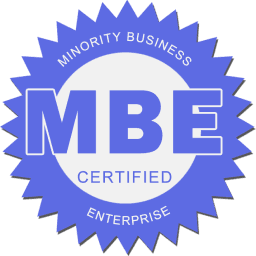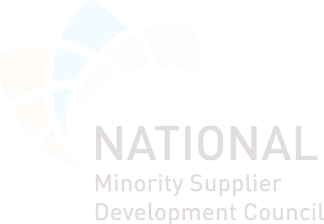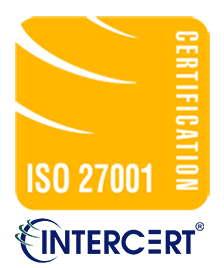Call centers face a myriad of challenges, from high call volumes and diverse customer inquiries to stringent compliance regulations. To navigate these complexities and deliver exceptional customer experiences, a robust quality assurance (QA) framework is indispensable. At the core of this framework lies a well-structured checklist that outlines critical performance indicators. Let’s take a look at the call center quality assurance checklist.
The Importance of A Checklist
A QA checklist is an essential tool for ensuring consistent and high-quality interactions between call center agents and customers. It serves as a comprehensive roadmap, guiding agents through the various stages of a call and establishing clear expectations for performance. By providing a structured framework, the checklist promotes adherence to best practices and helps agents deliver exceptional customer experiences.
Consistency is key in any customer-facing role. A QA checklist guarantees that agents follow standardized procedures, from greeting customers to resolving issues. This consistency leads to a positive brand image and builds customer trust.
Regular evaluation of agent performance against the checklist helps identify training needs. By pinpointing areas where agents consistently fall short, managers can develop targeted training programs to address specific skill gaps. It improves individual agent performance and also enhances the overall capabilities of the call center team.
The goal of any call center is to make your customers happier. A well-crafted QA checklist contributes directly to this objective by ensuring that customer interactions are handled efficiently, effectively, and empathetically. By examining agent performance, businesses can identify opportunities to improve customer experiences, increase customer loyalty, and ultimately drive business growth.
Components of a Call Center Quality Assurance Checklist

Now that you have an understanding of why a checklist for call centers is important, let’s take a look at the components of this checklist.
Mastering the Greeting
The initial moments of a call are crucial in setting the stage for a positive customer interaction. A well-executed greeting establishes rapport and also allows the agent to take control of the conversation from the outset.
Did the agent answer the call within a reasonable timeframe? Prompt responses demonstrate efficiency and respect for the caller's time.
Did the agent introduce themselves clearly and concisely? A clear introduction builds trust and credibility.
Did the agent accurately identify the company? This information is essential for caller orientation.
Did the agent take immediate control of the call? A confident and assertive demeanor guides the conversation effectively.
Verifying The Caller
Caller verification is a critical security measure that safeguards both the customer and the organization. It is essential for maintaining compliance with industry regulations and protecting sensitive customer information from unauthorized access. By diligently verifying the identity of callers, businesses can mitigate the risk of fraud, identity theft, and other security breaches.
Caller verification also serves to build trust and confidence. When customers feel assured that their identity has been confirmed, they are more likely to share personal information and conduct business transactions with confidence. This strengthens the customer-business relationship.
Did the agent adhere to the established verification procedure? Consistent application of protocols ensures accuracy and efficiency.
Did the agent confirm the caller's identity to prevent unauthorized access? Protecting sensitive information is crucial.
Uncovering Customer Needs
Active listening and empathy are the cornerstones of effective customer service. Agents must accurately identify and address caller concerns. By combining active listening and empathy, agents can effectively uncover the underlying needs and concerns of the caller. This involves going beyond surface-level information to find the root cause of the issue. By actively seeking to understand the caller's perspective, agents can provide more tailored and effective solutions. Ultimately, the ability to accurately identify and address customer needs is a cornerstone of delivering exceptional customer service.
Did the agent offer an appropriate solution based on the caller's needs? Demonstrates problem-solving ability and product knowledge.
Did the agent actively listen to the caller's concerns without interrupting? Shows genuine interest and understanding.
Was the agent able to communicate clearly and concisely? Effective communication prevents misunderstandings.
Did the agent set clear expectations and timelines? Manages caller expectations and builds credibility.
Did the agent transfer the call when necessary and provide relevant information to the receiving agent? Ensures a consistent customer experience.
Troubleshooting
First Call Resolution (FCR) is a metric for call centers, measuring the efficiency and effectiveness of agents in resolving customer issues on their initial contact. Achieving high FCR rates is important to reduce operational costs and improve overall call center performance.
To consistently deliver on FCR, agents must possess a robust combination of product knowledge, problem-solving skills, and access to relevant information. They should be well-versed in troubleshooting common issues and equipped with the tools and resources necessary to address complex problems. Efficiently navigating through troubleshooting steps and implementing appropriate solutions is essential to resolving customer inquiries swiftly and accurately.
Did the agent follow the correct troubleshooting procedure? Adherence to guidelines ensures consistent outcomes.
Did the agent provide clear and accurate explanations? Simplifies complex issues for the caller.
Did the agent successfully resolve the call? Measures the agent's problem-solving abilities.
Exceptional Customer Service

Delivering outstanding customer service is a delicate balance between technical proficiency and interpersonal skills. Technical proficiency refers to an agent's in-depth knowledge of products or services, systems, and processes. This knowledge allows agents to accurately and efficiently address customer inquiries, troubleshoot issues, and provide solutions. A strong foundation in technical aspects ensures that customers receive correct and timely information, minimizing frustration overall.
Interpersonal skills, on the other hand, focus on building rapport and connections with customers. Active listening, empathy, and effective communication are essential components of this skill set. Agents who can genuinely understand and respond to customer needs, emotions, and concerns create a positive and personalized experience.
Did the agent actively listen to the caller's concerns? Demonstrates empathy and understanding.
Did the agent speak clearly and audibly? Ensures effective communication.
Did the agent express empathy and understanding? Builds rapport and loyalty.
Did the agent show a willingness to help? Creates a positive customer experience.
Did the agent maintain control of the call without rushing? Demonstrates professionalism and confidence.
Did the agent comply with relevant regulations and policies? Protects the company's reputation and avoids legal issues.
Professional Closing
The call closure represents a final opportunity to leave a lasting positive impression on the customer. It's a chance to reinforce the value provided, build goodwill, and encourage future interactions. A well-executed closing can elevate the overall customer experience.
By summarizing key points, agents can demonstrate attentiveness and ensure the customer understands the outcome of the call. Clearly outlining next steps provides clarity and manages expectations, reducing the likelihood of follow-up inquiries. Additionally, offering the opportunity to address any remaining questions or concerns demonstrates a commitment to customers and reinforces the agent's willingness to assist.
Did the agent summarize the key points of the call? Reinforces information and demonstrates attentiveness.
Did the agent explain the next steps clearly? Manages caller expectations.
Did the agent confirm that the caller has no further questions? Ensures complete resolution.
Did the agent thank the caller for their business? Expresses gratitude and appreciation.
Did the agent wait for the caller to hang up first? Demonstrates respect for the caller.
Did the agent invite the caller to participate in a post-call survey? Gather valuable feedback.
Post-Call Tasks

Effective post-call tasks are essential for maintaining accurate customer records and driving operational efficiency. Accurate documentation serves as a historical record of customer interactions, enabling agents to provide consistent and personalized service during subsequent contacts. By capturing key details such as customer information, issues raised, resolutions implemented, and any follow-up actions, agents ensure that no critical information is overlooked.
Did the agent take detailed notes of the call? Provides a record for future reference.
Did the agent update the customer's account with relevant information? Ensures data accuracy.
By diligently evaluating agent performance against these criteria, call centers can identify strengths, weaknesses, and areas for improvement, allowing organizations to optimize operations.
Best Practices For Call Center Excellence
In essence, the blueprint for call center excellence is a call center quality assurance checklist. By meticulously examining each interaction through the lens of these essential components, businesses can identify strengths, weaknesses, and areas for improvement. This approach allows organizations to optimize operations and cultivate a culture of continuous improvement. Ultimately, a robust QA framework is a strategic investment in the long-term success of the call center and the overall customer experience.
To get started with your call center management, choose Omind’s marketing automation and Voice Bot solutions that harness the best of AI and automation to turn your visitors into repeat customers. Click here to find out more about Omind’s marketing automation and Voice Bot solutions.
AUTHOR
Team Omind
Empowering Businesses with Unified Customer Experience Platform, Leveraging Advanced AI and Intelligent Automation
PRODUCT
QMS
Share LINK
Related Blogs




